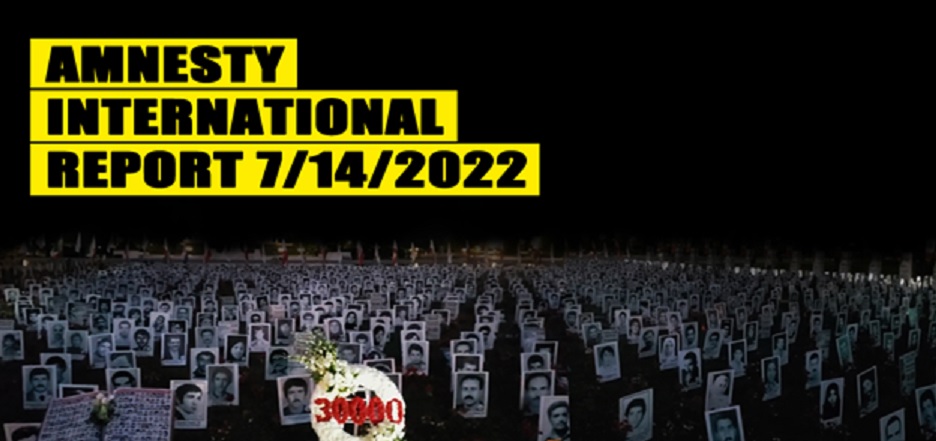AMNESTY INTERNATIONAL | July 14, 2022
Responding to today’s landmark decision of Stockholm’s District Court sentencing a former Iranian official, Hamid Nouri, to life in prison over crimes related to Iran’s 1988 prison massacres, following a trial carried out under the principle of universal judication, Diana Eltahawy, Amnesty International’s Deputy Director for the Middle East and North Africa, said:
“Hamid Nouri’s conviction and sentence today in Sweden for crimes related to Iran’s 1988 prison massacres is an unprecedented step towards justice for crimes committed in Iran and sends an unequivocal, and long overdue, message to the Iranian authorities that those responsible for crimes against humanity in Iran will not escape justice.
“For more than three decades, survivors and relatives of thousands of political dissidents extrajudicially killed and forcibly disappeared in Iran’s 1988 prison massacres, have struggled for truth and justice. With this first ever ruling against an Iranian official, albeit in a European court, they have finally witnessed an Iranian official held to account for these crimes. This must be followed by all states exercising universal jurisdiction to criminally investigate all other former and current officials in Iran against whom there is evidence of involvement in past and ongoing crimes against humanity, including Ebrahim Raisi, the country’s President.
“This critical ruling must serve as a wake-up call to the international community to tackle the crisis of impunity that prevails in Iran. To address this, members of the UN Human Rights Council must urgently establish an international investigative and accountability mechanism into the most serious crimes committed in the country, including the thousands of cases of enforced disappearances which remain unresolved more than 30 years after the 1988 prison massacres.”
Background
Consistent with their long-standing pattern of denial and distortion, the Iranian authorities have reacted to the trial of Hamid Nouri by describing it as a “plot” concocted by “terrorists” that relied on “fake documentation and witnesses”.
In a 2018 report Iran: Blood-soaked secrets: Why Iran’s 1988 prison massacres are ongoing crimes against humanity, Amnesty International concluded that, in addition to committing the crime against humanity of murder in 1988 by extrajudicially executing thousands of political dissidents in secret, the Iranian authorities are committing the ongoing crimes against humanity of enforced disappearance, persecution, torture and other inhumane acts, including by systematically concealing the fate of the victims and the whereabouts of their remains.
In 2021, the UN Working Group on Enforced and Involuntary Disappearances called for an international investigation into enforced disappearances arising from the 1988 prison massacres.










